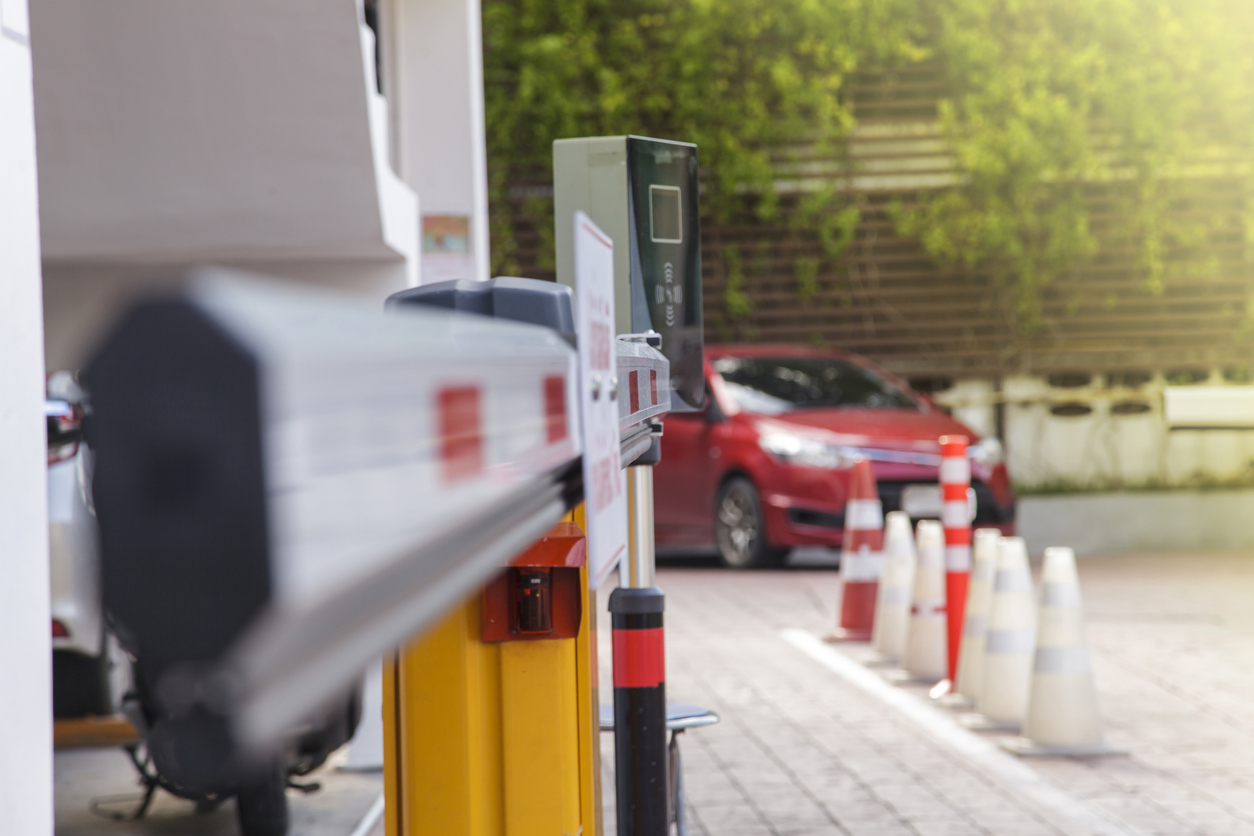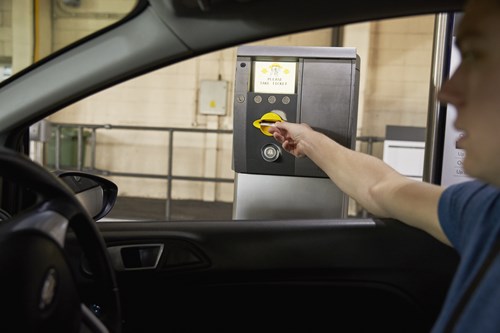
Next week on Parking Talks we will be welcoming industry experts IP Parking, Scheidt & Bachmann and TIBA to discuss the growing trend towards barrierless parking. During the debate, we will hear more about user behavior, customer experience and the pros and cons of both barrier and barrierless solutions.
Before we hear from our members, let’s get up to speed with PARCS and the barrierless trend.
What is Barrier Parking?
Barrier parking requires a user to interact directly with parking hardware. So, for example, to enter and exit a facility they must press a button or insert a ticket or some other form of identification.
In a barrier parking system you will typically find three key components: entry and exit lanes, management software suites and payment devices. You might also see additional services such as intercoms and digital signage, all designed to improve interaction with the user and improve customer experience.

And, to further improve the customer experience by reducing the necessity for interaction with the hardware, barrier systems might feature pre-booking or hands-free parking for registered users.
What Are the Benefits of Barrier Parking
Barrier parking is common in facilities where access is required by one-time or infrequent users, such as shopping centers and hospitals. And, there are a number of benefits to both the users and facility managers of car parks operating a barrier system.
For Users, the Benefits Are:
- ease of payment, with only staying time paid for and no need to display tickets
- standardized, and therefore familiar user experience around the world
- an increased sense of security
For Owners, the Benefits Are:
- increased safety on-site, as barriers provide transitional space from highway to carpark
- payment security, as revenue must be collected before a user can leave the site
Downsides of Barrier Parking
Of course, with any system, there are downsides to the list of benefits. And common complaints from users or barrier systems is the level of interaction required.

In an increasingly digital and automated age, users are becoming more used to hands-free interaction, where everyday activities are completed automatically. So, instead of entering my house and walking through each room to adjust the lighting and temperature at each device in my house, I would expect to do this from one single device, such as my phone, from the comfort of my sofa, or even my office before I leave for home. Applying this expectation to a driver, they are increasingly coming to expect their vehicle to be equipped in some way, either through the dashboard, a mobile device or RFID or NFC tag, so that they are able to enter and exit the facility without being impeded by a barrier.
And, for car park operators, barrier solutions can result in congestion around the entrance and exit. Even if users are able to enter and exit smoothly, traffic still has a tendency to build, and as soon as a user experiences a problem with verifying their payment, or the machine breaks, gridlock can ensue throughout the parking facility.
What is Barrierless Parking?
Barrierless parking is still a relatively new concept. The solution operates very much like road tolling, so instead of using barriers to control who can access a site, operators monitor the site and use enforcement and dynamic pricing to encourage users to comply with time restrictions and enforce payment.

In a barrierless system, you will typically see License Plate Recognition in place, as this method does not require a user to pre-register, however, there are other solutions which utilize NFC tags, Bluetooth, mobile apps or dashboard services to link a user to a car park and generate a fee.
Systems can be deployed in many forms to support local payment by coin, note or credit card or through web-based card payments with no local hardware required. It is common to see pay by phone options, pre and post parking payment, as well as subscription parking and white list.

What Are the Benefits of Barrierless Parking?
Barrierless parking is useful in facilities which see returning visitors, so for example residential or office parking. In these circumstances, users may not need to pay for their parking, and so it is not necessary to have a physical barrier in place to control access and revenue, or it is more useful for the user to pay for their parking via a subscription.
For Users, the Benefits Are:
- a seamless customer experience. As parking is increasingly seen as an extension of the customer experience, this is becoming more of a priority
For Owners, the Benefits Are:
- flexibility, because systems can offer a range of payment options suitable to each user
- data collection is possible, to analyze who is using the parking facility, and how
- low investment, less hardware is required and maintenance fees are reduced
Downsides of Barrierless Parking
Barrierless parking is still a new concept, and many operators are waiting for positive feedback from facilities already operating under a barrierless system before they proceed. For operators, there is a concern regarding enforcement, because, without barriers, different systems need to be put in place to ensure that users are compliant and revenue is not impacted negatively. And so there is an initial and ongoing investment required for enforcement as well as managing the day to day running of the site.
And, for users of the parking facility, barrierless parking can feel unfamiliar. Without barriers, parking can feel less secure, and users can experience difficulties with payment methods. For less digitally-savvy users, pay by phone parking, or similar systems can be intimidating to use without the right guidance.
What Next?
As more and more of our daily activities move from the manual to the digital it is likely that barrierless parking will grow, and as it does so more problems will be ironed-out and users will become more familiar with the process. However, it is likely that barrier parking, with its many advantages, will remain a useful solution for the near future.
Remember to tune in for our Parking Talks debate next week to see what our members think!





